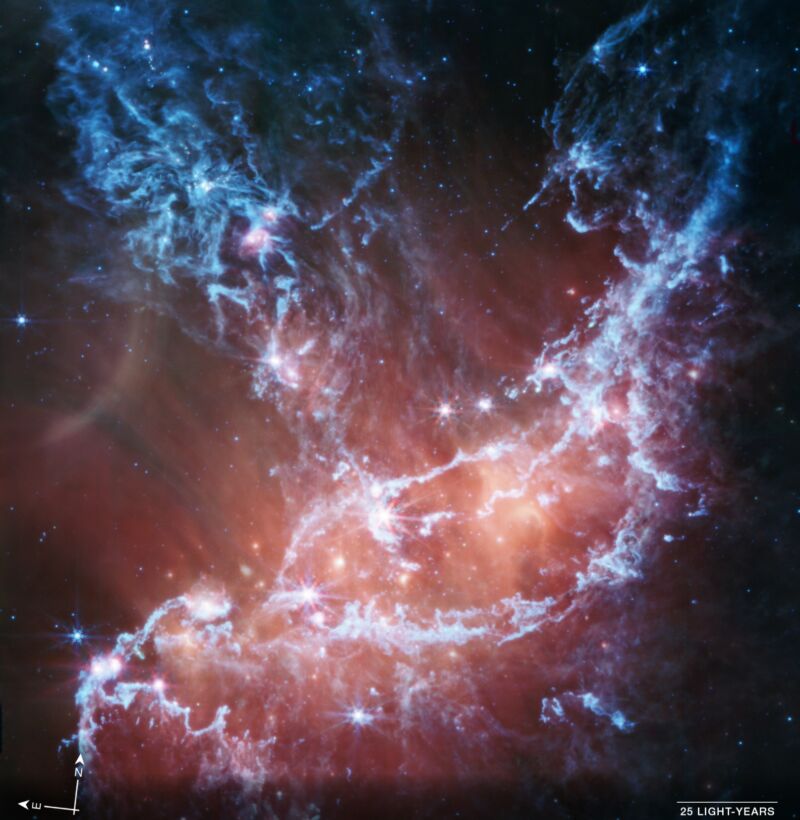Enlarge / A new infrared image of NGC 346 from the Mid-Infrared Instrument on NASA’s James Webb Space Telescope. (credit: NASA, ESA, CSA, STScI, Nolan Habel (NASA-JPL))
Welcome to the Daily Telescope. There is a little too much darkness in this world and not enough light; a little too much pseudoscience and not enough science. We’ll let other publications offer you a daily horoscope. At Ars Technica, we’re going to take a different route, finding inspiration from very real images of a universe that is filled with stars and wonder.
Good morning. It is October 23, and today’s image features a new view of a star cluster within the Small Magellanic Cloud, one of the nearest galaxies to Earth. This galaxy has an estimated 3 billion stars, which sounds like a lot. However it is tiny compared to the nearest galaxy that is of a similar size to our own Milky Way. That would be the Andromeda Galaxy, which has an estimated 1 trillion stars. That’s … a lot.
Anyway, one of the neatest features in the Small Magellanic Cloud is a particularly bright cluster of stars known as NGC 346, discovered about 200 years ago by a Scottish astronomer. Some of these stars may be as young as 2 million years old.
Read 3 remaining paragraphs | Comments

